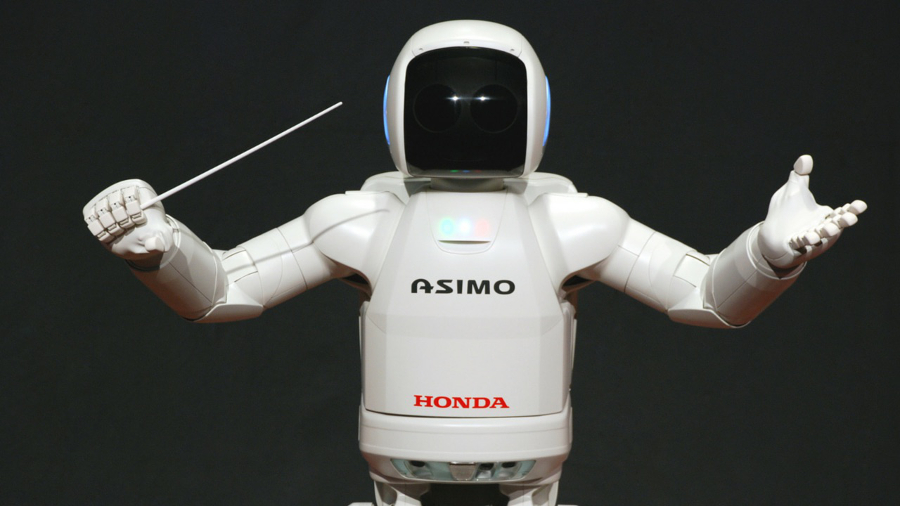Tech trends for 2015: the year in which the digital-first world takes hold
Disrupting the disruptors

2014 was an incredible year. We watched technology cross the threshold from futuristic concept to mainstream use with biometric devices like Apple's Touch ID featured on the iPhone and iPad, and 3D printers being piloted across schools for science, technology, engineering and mathematics (STEM) teaching.
The development of Gigabit-per-second broadband service by BT G.FAST started pushing broadband to new limits and free Wi-Fi became a mainstay in public places like the London underground, train stations, and local coffee shops including Costa and Starbucks.
While some companies soared – internet service Airbnb kick-started the sharing economy, WhatsApp was acquired by Facebook for a whopping $16 billion (around £10.5 billion, AU$19.5 billion), and Alibaba celebrated the largest tech IPO ever, raking in $21.8 billion (around £14.5 billion, AU$26.5 billion) – others fell by the wayside. Amidst all the market upheavals, change was the only constant.
"When you're finished changing, you're finished." – Benjamin Franklin
So what's in store for this year? As the "digital-first world" takes hold, the disruptors will be disrupted and technology will continue to change our lives in big ways. Here are the top technology trends that I see impacting the way we work and play in 2015.
1. Cloud becomes the new normal
The cloud will be embraced en masse this year because the benefits are huge. By digitising information-intensive processes, costs can be cut by up to 90% and turnaround times improved by several orders of magnitude.
Sign up to the TechRadar Pro newsletter to get all the top news, opinion, features and guidance your business needs to succeed!
What I expect to see by year-end is a world of hybrid deployments in which some information and applications reside in the cloud and the remainder resides on-premise. Data security is a top priority, and a hybrid model allows organisations to balance their workload, meeting all their data sovereignty requirements while leveraging the power of the cloud.
2. Digitisation begins the next massive displacement and migration of labour
The employment landscape will be in flux throughout 2015, the early stages of what I expect to be the next significant labour displacement in history.
Digital technologies like the Internet of Things (IoT), wearable technologies, and mobile and smart devices will force organisations to change the way they engage customers, and develop and deliver new products and services. Analytics will become ubiquitous, bringing intelligence to every process. Robotics, smart machines, and artificial intelligence (AI) will infiltrate new parts of the organisation and automate positions that are repetitive and transactional in nature. In time, we could see 20 to 30 million jobs migrate or disappear.
It's not all doom and gloom, but simply a shift from transactional jobs to tacit jobs. Tacit jobs require data analysis, judgement, and problem solving skills, as well as the ability to think creatively, communicate effectively, and collaborate in teams. Tacit jobs are predicted to grow two-and-a-half times faster than the transactional segment and CEOs will soon recognise the skills gap around tacit jobs for technology.
3. New startups will mesh digital and physical
2015 will be the year that we see an increasing amount of nimble startups outpacing established enterprises to bring new products to market faster. Technological advances like 5G networks, more processing power, advances in storage, and cloud and mobile computing are blurring the boundaries between the physical and the virtual – between people and their technology. Startups will follow in the footsteps of Tado and Dash to leverage this "zero-distance connectivity" and offer compelling new products and services.
Startups are purists in their approach, organising their operations around a focused sense of purpose and the promise of tremendous growth. Agility trumps size, which makes startup culture dynamic, unstable, easy to scale, and eager to embrace (even define) new business models.
The startup philosophy entails a rapid product development cycle. Over the next few years, we'll see development cycles evolve from sprints to hyper-connected dashes. Innovation will become faster, more compressed, and approach the spontaneous. To keep pace in a digital-first world, CIOs and business leaders will have to think like entrepreneurs and adopt startup strategies. Borrowing from the startup ethos will empower them to build adaptive enterprises that can proactively create opportunities for growth.